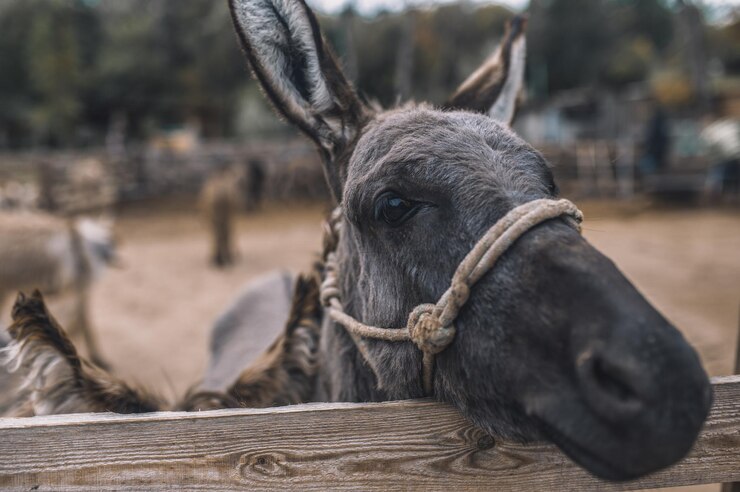Donkeys have played a significant role in South African agriculture and rural communities for many years. They have been an integral part of farming practices, transportation, and livelihoods in various ways. Here are some key aspects of the role of donkeys in South African agriculture and rural communities:
- Farming Assistance: Donkeys have been used as working animals on farms, especially in areas where mechanized farming equipment is limited. They have been employed for plowing fields, pulling carts or wagons, and transporting heavy loads. Donkeys are well-suited for these tasks due to their strength, endurance, and ability to navigate challenging terrains.
- Transportation: In rural areas where roads are often unpaved or inaccessible by vehicles, donkeys have served as a reliable mode of transportation. They are capable of carrying goods, supplies, and people across uneven or hilly landscapes. Donkeys can navigate narrow paths and reach areas where motorized vehicles may struggle to operate.
- Water Retrieval: Donkeys have been instrumental in fetching water from distant sources, such as rivers or wells, and transporting it back to communities or farms. This has been particularly vital in arid regions or places where access to clean water is limited.
- Livelihood Support: Donkeys have provided an important source of income for rural communities. They can be rented out or used for commercial purposes, such as transporting goods for trading. Donkeys have also been involved in tourism activities, offering rides or participating in excursions, which generate income for their owners.
- Cultural Significance: Donkeys hold cultural significance in many South African rural communities. They are featured in traditional festivities, parades, and celebrations, representing heritage and local customs. Donkeys often feature in folklore, stories, and songs, reflecting their cultural value and connection to the community.
- Eco-Friendly Alternative: Donkeys are considered an environmentally friendly option for transportation and agricultural work. They do not contribute to pollution or greenhouse gas emissions like motorized vehicles. In areas where sustainability and conservation are priorities, donkeys can be seen as a more ecologically conscious choice.
Despite their historical and ongoing contributions, it’s worth noting that donkeys in South Africa, as in other parts of the world, face challenges such as overworking, mistreatment, and neglect. Efforts are being made by organizations and government agencies to promote responsible donkey ownership, improve their welfare, and prevent their exploitation.
In conclusion, donkeys have played a multifaceted role in South African agriculture and rural communities. Their strength, versatility, and adaptability have made them indispensable in various tasks, providing assistance, transportation, livelihood support, and cultural significance.
Join 'Farmers Mag' WhatsApp Channel
Get the latest Farming news and tips delivered straight to your WhatsApp
CLICK HERE TO JOIN






